I used to travel to Milan often. It was told to me that there isn’t much to do in the city as it was the center for fashion and other industries, but not really a tourist place. See the Duomo and Leonardo’s The Last Supper and you have pretty much exhausted everything you will want to do. Then take a train out to the more interesting parts of Milan. But I found that this wasn’t true at all. There are many activities and sights to enjoy in Milan.
If the city of Rome represents the old Italy, then Milan represents the new. The city is one of the largest in the country with major urban and suburban sprawl. Milan is financially one the most important cities in Italy and for over 26 centuries it is the seat of Italian art, fashion, design, and commerce all rolled into one beautiful cosmopolitan city. Milan has just as much beauty in it as other Italian but it offers something a little more. The city, unfortunately, was pretty badly damaged in World War Two but out of the ashes, the city was able to rebuilt and so as it stands today Milan is a mix of rebuilt and restructured old renaissance-era cathedral and villas, along with a bustling modern metropolis amongst the historic sites.
At first sight, Milan is stylish and bustling but contrasted with the modern buildings is the old Milan and while its sites are not quite “in your face” as they are in other cities like Rome, the historicity of Milan might require a little exploration. Milan has historically been a center for music, theater, art, and sport, and for the most part that tradition still carries with many Milanese loving the indulgence of the senses with food, art, and sports still being favorite pastimes for the locals. Check out some of the best spots around Milan and explore this amazing city.
Explore the Duomo
Coming in at the top of the list is an easy one. With the largess and overall grandness of the cathedral, the Duomo di Milano is such a gigantic presence in the city that it practically has its own gravitational pull. Much like the Notre Dame in Paris or La Segrada Familia in Barcelona, the Milan Cathedral is a masterpiece of fine art that is emblematic of the city itself. No matter how many times I have seen it, I am still in awe.
The Duomo di Milano is the largest cathedral in Italy, even larger than St. Peter’s Basilica in Vatican City and it took nearly six centuries to finish. The building began at the behest of the archbishop in 1386 and was only officially completed in 1965. Working with the latest trends in European architecture, it wasn’t until 1488 that Leonardo Da Vinci submitted a design for the cupola, though he withdrew his submission later on. By the 1800s, Napoleon was crowned King of Italy in the Duomo and although it suffered some damage in WWII, the majority of the building was spared and easily rebuilt after the war.
Currently, the cathedral houses a museum for visitors to check out and learn about the centuries-old construction as well as provide an opportunity to check out the naves and artworks up close.
Walk around Castello Sforzesco
Practically located in the center of town, the Castello Sforzesco is one of those things in Milan that is historic and old but you might not even realize. Originally created as a fortress in 1370, the building soon became a castle, and additions like a courtyard and battlements were added. The castle was completed in the 1500s and retains a lot of its original prestige that’s pretty noticeable when you get up close. The large red brick walls and extensive green courtyard area make the space feel important and lively, while the largest of the guard towers impose a striking sense of grandeur. The building itself now houses a museum with plenty of artifacts and information about the city of Milan.
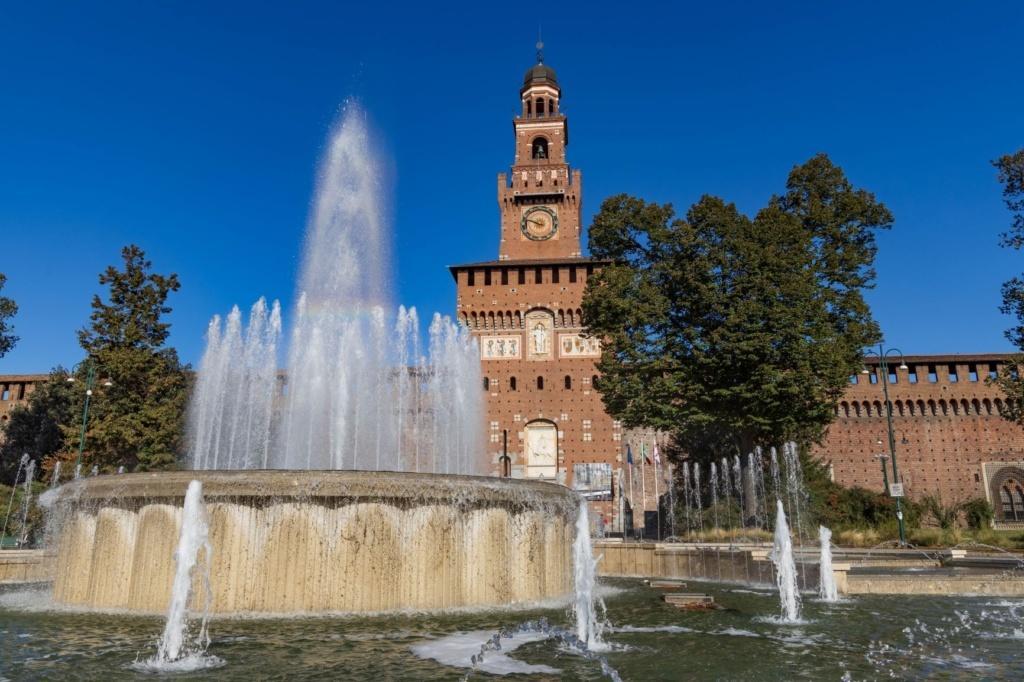
Over 600 years old, the Castello Sforzesco houses a museum that houses many Milanese artifacts.
Bask in modern at the L.O.V.E. statue
Milan is a place where art thrives. From classic renaissance painters to modern-day sculptors, there is no shortage of interesting art to be found in the city. There are different ways of representing money and wealth around the world, for example, the iconic Wall Street Bull in New York City might be a symbol of power or capitalism, but in Milan, the L.O.V.E. statue is a little less unambiguous.
Located in the center of the Piazza Affari, the L.O.V.E. the statue is a hand with the middle finger sticking up. If you look closer, you’ll notice the other fingers are not down but cut off entirely. Facing the Italian stock exchange building – the message is pretty clear. The statue was supposed to stay there for a few days but the government decided on making it a permanent installation.
The L.O.V.E. was built in 2010 after the 2008 financial crisis that hit some Italians pretty hard and if it wasn’t for the cut-off fingers, it would have resembled a fascist salute, which is suiting because the building it faces was built in the fascist era. The area itself is not particularly busy with tourists but you’ll often find many people making a detour to come to giggle and take pictures with the statue.
While the artists never commented on the meaning of the L.O.V.E. statue, it doesn’t take a master’s degree in art to figure this one out.
Have a bite at Fonderie Milanesi
While many are probably familiar with the term “aperitivo”, few might know what it is. An aperitivo is a pre-meal drink that is supposed to whet your appetite and get you ready to eat. Generally held between the hours of 7 pm and 9 pm the concept brings people together to have a drink, relax and get ready for the main course while snacking and drinking a little bit beforehand.
In Milan, the aperitivo is practically a cultural institution and no visit to the city would be complete without partaking in it. The Fonderie Milanesi is a perfect spot to get acquainted with the pre-dinner concept. Sit outside and enjoy the evening sun while you sip on a cocktail and specialty crafted to stimulate rather than spoil your appetite. As the world of cocktails emerged, more drinks were developed to accompany the snacks and now practically every traditional bar in the city will have some kind of spread.
Grab a drink at BackDoor 43
Along a canal-lined street where there are waterside restaurants and upscale dining spaces is a little wooden door that sort of looks like it doesn’t belong. That door is known as BackDoor 43 and it is (as they claim) the world’s smallest bar.
The bar is 43 square feet in size and that includes the bathroom. There are three barstools to allow for 3 people to sit at a time and to get in you need a key and a secret password. Guests can book their time here for up to two hours at a time to escape the hustle and bustle of city life and feel like they’re in their little club.
Secrecy is the standard here, guests will only see the bartender’s hands through a little slot in a window, and if any nosy passerby’s walk past they’ll only see the bartender’s face obscured by a mask. The bar itself utilizes every nook and cranny of the closet-like space. Mugs and cups dangle from hooks on the walls and ceiling while little wooden shelves hold little antiques and esoterica and the ceiling is papered over with an old map.
The drinks here are top notch with your secret bartender definitely knowing what they’re doing as they cater your cocktails to your specific tastes. With over 60 rare whiskies and funky glassware drinks like The Bahamas is served in a 60s retro-style tiki glass while the Guatemalan comes served with roasted coffee beans.
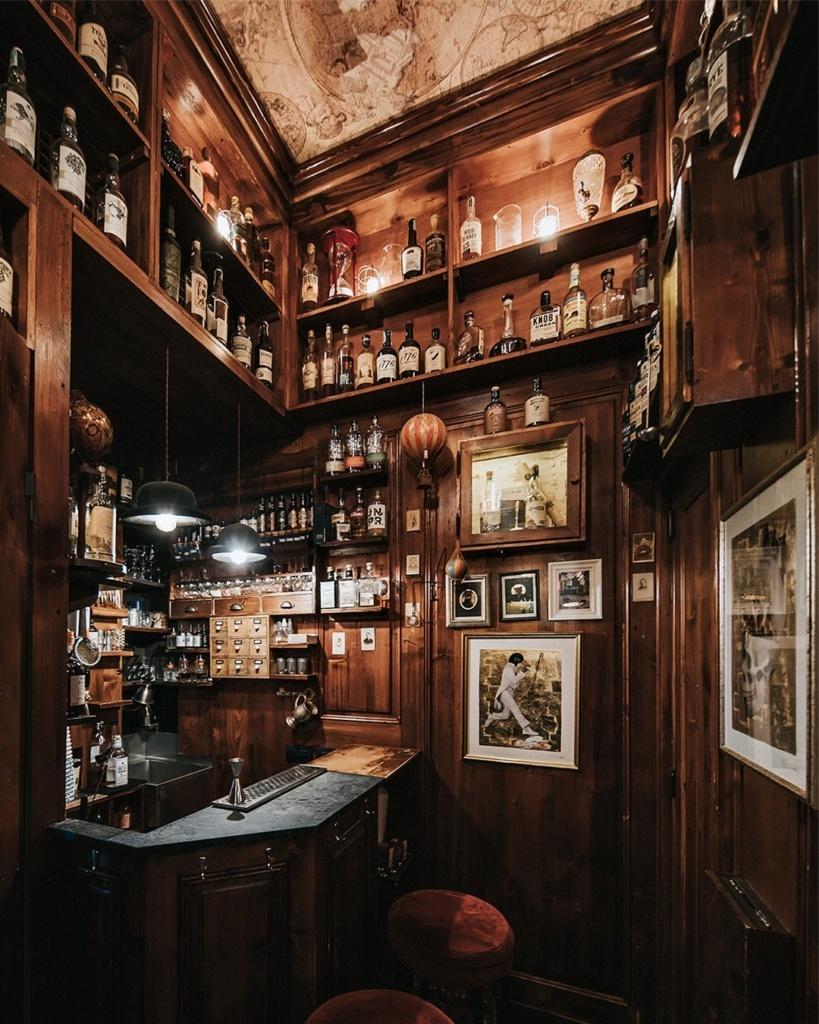
Head to Backdoor 43 for a truly unique experience and fantastic drinks. It is only 43 square feet in size including the bathroom.
Explore the Navigli District
If you’re walking out of BackDoor 43 and don’t want to head back to your hotel so soon, stay a while in the neighborhood because it is probably one of the most unique spots around the city. Falling under the notion of “didn’t know it was historic until you look closer” the area of Navigli District is the result of over 100 years of construction. Developed with input from Da Vinci himself, the neighborhood of Navigli District opened landlocked Milan up to the world.
Taking a page from Venice, canals were built to give Milanese traders and merchants access to the waterways to allow goods to come in and out of the city in a time before cars and trains. The interconnected canals now have upscale restaurants, bars, and clubs facing them but tour guides along the canals are also a popular daytime activity here. A little taste of Venice in the heart of Milan.
See Leonardo’s Horse
Having been raised in Pennsylvania, I always loved this. Located outside the San Siro Hippodrome, the story of Leonardo’s Horse goes back at least 500 years and was completed by an airline pilot from Pennsylvania. The story is almost too ridiculous to be true.
In the 1400s a man named Ludovico Sforza was the son of a mercenary who was described by Machiavelli in The Price as quite the badass. In 1481 Ludovico and his wife were patrons of the arts and it was a time in Milan that saw a lot of growth in the art world despite the looming threat of violence politically. Leonardo Da Vinci, already an established engineer and artist, approached Ludovico for patronage. Sforza accepted Da Vinci’s offer and Da Vinci went to work right away on the bronze horse presenting a clay model of it on the day of Ludovico’s daughter’s wedding.
Meanwhile, France was going to war against the Kingdom of Venice and Ludovico offered French forces a safe passage through Milan. The French turned on him, and so Ludovico had to use the bronze meant for the horse statue to forge weapons. What was already built of the horse statue was then used for target practice by French archers. Following the wars, Da Vinci’s sketches, molds, and plans were lost and the project was scrapped.
Until 1965, five centuries later when Da Vinci’s notebooks were found in Madrid’s national library. A renaissance art enthusiast from Allentown, Pennsylvania decided to take it upon himself to complete the statue so he hired a sculptor to complete the horse using Da Vinci’s own sketches and plans. The final horse was completed in 1999, 500 years after the original was destroyed. It is 25 feet tall, sits on a white marble pedestal, and weighs 15 tons.
Catch a game at San Siro Stadium
Located just a stone’s throw away from Leonardo’s horse is the always humming San Siro Stadium. If there’s anything Italians love more than food it’s probably soccer. San Siro Stadium is home to both AC Milan and Inter Milan and it is one of the largest stadiums in Europe with a whopping capacity of 80,000 people. The stadium was consistently enlarged throughout the last century and even if you’re not a huge fan of the sport, it’s pretty hard not to get enthralled when you’re surrounded by 80,000 roaring fans. If you manage to get tickets for the Derby Della Madonnina (which is when AC Milan plays Inter Milan) it is one of the hottest tickets in Italian soccer.
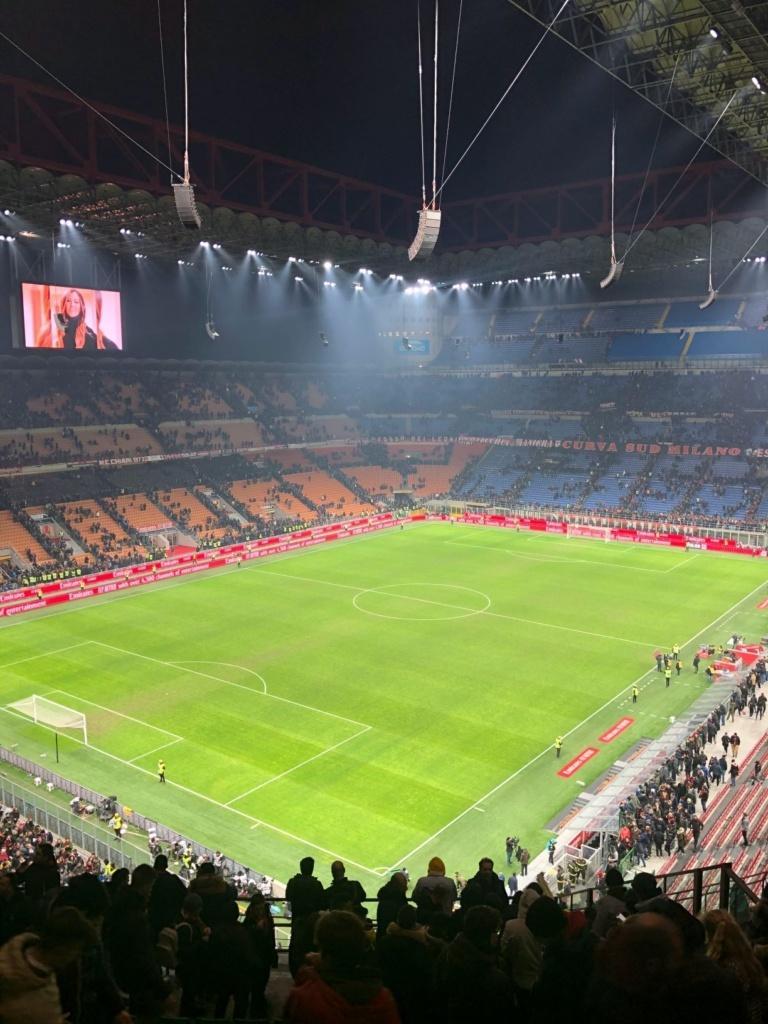
Head to San Siro for football.
Our Last Word
Milan is a city that continues to give after generations and generations. Whether that’s a horse 500 years in the making or neighborhoods built centuries ago that are now as popular as ever. Milan has everything from both modern and classical art to crazy events and amazing people and this list barely even scratches that surface. So head out and explore it up close and personal.
1 Comment
Submit a Comment
Related Posts
The Impact of Travel: How Traveling Can Change Your Perspective
Traveling can open your eyes to the world around you. It can help you gain a new perspective on life, culture, and the world in general. Whether you’re exploring a new city or visiting a foreign country, you’ll be exposed to different customs, beliefs, and lifestyles. You’ll learn to appreciate the beauty of different cultures and gain a better understanding of the world. Traveling can be a life-changing experience, allowing you to gain a new appreciation for the world and its people.
Things You Need to Be Careful About When Traveling to Italy
Discover the key precautions when traveling to Italy – from avoiding tourist traps to navigating cultural nuances. Our comprehensive guide ensures a safe and enriching experience. Plan your Italian adventure with confidence!

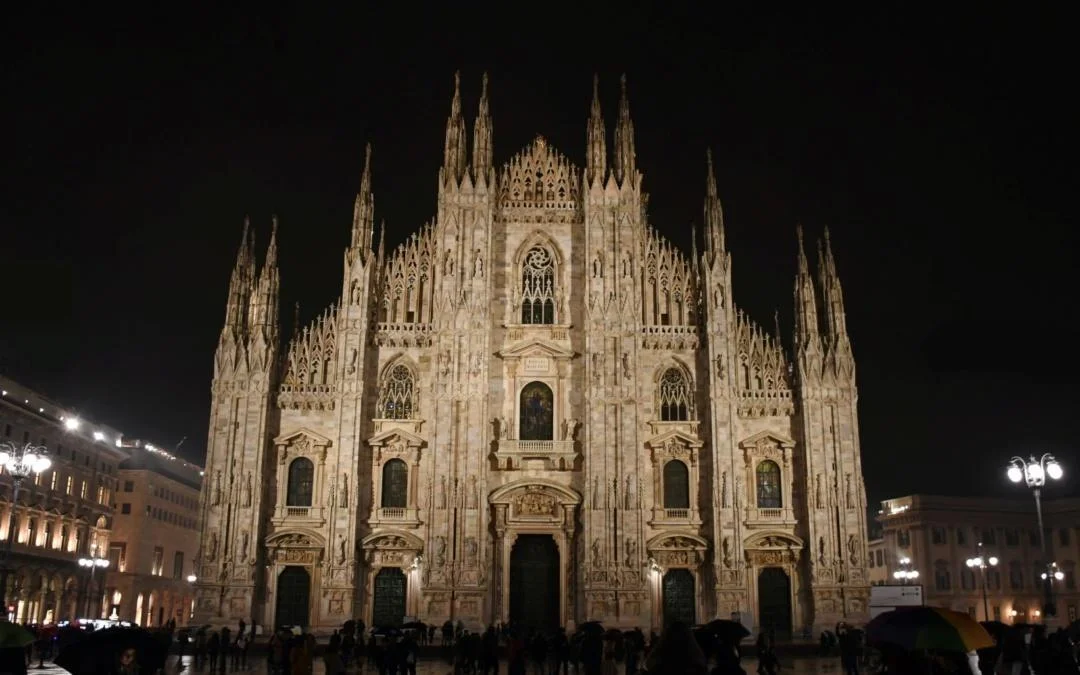
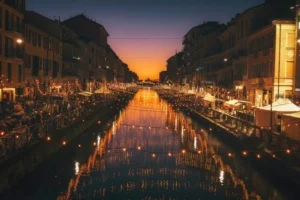
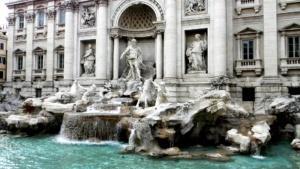
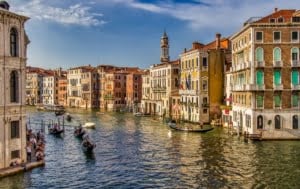

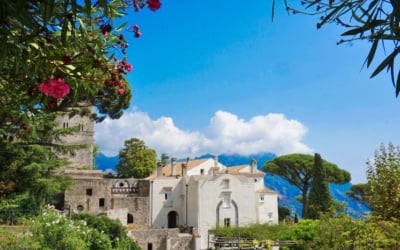



Classic and well delivered article .With all this vital information on what do in Milan. You are good to go. I love football ! Thank you so much